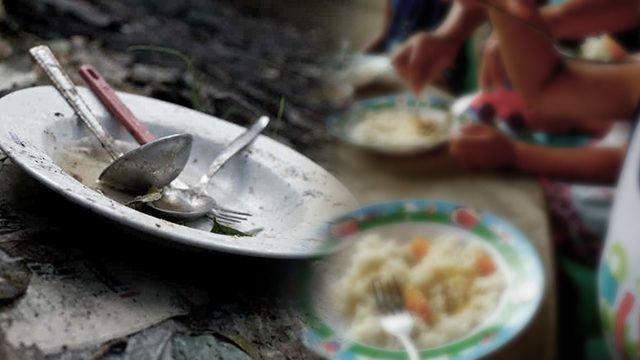SUMMARY
This is AI generated summarization, which may have errors. For context, always refer to the full article.

MANILA, Philippines – The government should “step up” its efforts in addressing food insecurity in the Philippines amidst an “improving economy,” the Philippine Legislators’ Committee on Population and Development (PLCPD) said on Tuesday, September 1.
In 2014, the economy grew by 6.1% yet poverty incidence registered at 25.8% in the first semester. Meanwhile, the latest Social Weather Stations survey found that 12.7% of Filipino families went hungry despite a 5.6% increase in the Gross Domestic Product (GDP) during the 2nd quarter of 2015.
“Indeed, the challenge to cascade the benefits of economic development to the great majority of the people remains huge. Recent economic growth has not translated to improved conditions on the ground,” the group said in a statement. “As the wealth of a few grows, the stomach of the many continues to growl.”
The group added that the inclusive growth the Philippines longs for means that no one gets left behind – in terms of development and having adequate food on the table.
Improving the fight
The Food and Agricultural Organization defines food security as: “when all people, at all times, have physical and economic access to sufficient, safe, and nutritious food that meets their dietary needs and food preferences for an active and healthy life.”
To achieve this, the government should improve its handling of problems in both policy and implementation aspects. This way, growth can be felt by all sectors.
The group also urged Congress to prioritize the enactment of bills and proposals that seek to “reform the bureaucracy in the food security sector, mitigate vulnerabilities and address threats to food security such as climate change and armed conflict, and close the widening inequality that compromises people’s access to food.”
Relevant agencies, PLCPD said, should enhance coordination in ensuring existing policies and programs aimed at addressing food insecurity are properly implemented.
Approximately 17.5 million Filipinos are still undernourished while 19% of the whole population live under a daily budget of less than P50 ($1.25), the 2015 Regional Overview of Food Insecurity in Asia and the Pacific reported. It added that the country wasn’t able to achieve the target of halving the number of undernourished people by 2015 due to “slow progress.”
Meanwhile, the 2015 Global Food Security Index rated the existing efforts to reverse food insecurity as “moderate” with the Philippines ranking 72nd out of 109 countries.
For a brighter future
The benefits of investing in efforts to achieve food security and proper nutrition go beyond individuals.
By fighting harder against the problems of hunger and malnutrition, the future of the whole country – not just individuals – will look brighter.
“Food and nutrition security hold the key to a brighter tomorrow,” PLCPD stressed. “It is our duty to make it a reality today.” – Rappler.com
Ending hunger is part of the 17 Global Goals! How can the Philippines achieve this by 2030? Join the conversation at Rappler’s Innovation +Social Good! Register here.
Add a comment
How does this make you feel?
There are no comments yet. Add your comment to start the conversation.